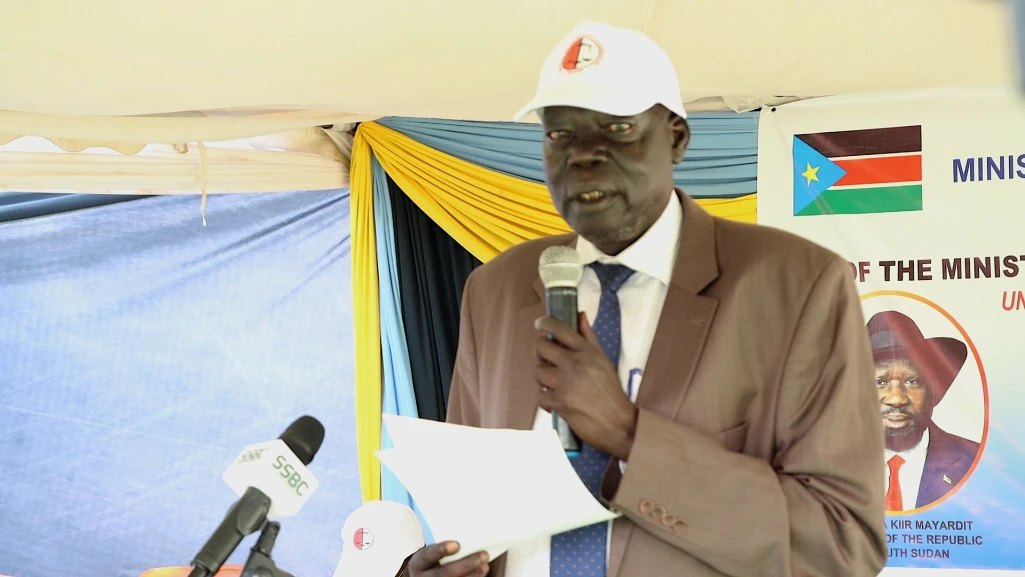
Justice and the rule of law are indispensable to the
nation's economic and social advancement, according to the Minister of Justice
and Constitutional Affairs.
Justice Ruben Madol made the remarks at the launch of the
ministry's strategic plan 2023-2026 in Juba on Wednesday.
The strategic plan's goal is to provide a framework for the
effective delivery of legal services by the Ministry of Justice and
Constitutional Affairs, as well as to build an accessible, fair, efficient,
transparent, and responsive justice system consistent with international
standards to uphold the rule of law.
Madol expects that it will serve as a roadmap for carrying
out all of the ministry's policies, initiatives, and programs in order to
improve legal services across the nation.
“The ministry strategic plan 2023-2026 is of its first kind
since the establishment of the ministry in 2005; it also contains important
sections of R-ARCSS 2018 and establishes new directorates in the ministry as
the Directorate of Conventions and Treaties, the Directorate of Human Rights,
and the Directorate of Instructions and Appraisal," Madol stated.
Chief Justice Chan Reech Madut of South Sudan, for his part,
emphasized upholding the law and customs.
"The courts have to ensure that people have access to
justice despite not having money; someone cannot be denied justice just because
he or she does not have fees to pay while seeking justice," Chan
underlined.
"Access to justice and the rule of law is a legal and
moral obligation. Advocates should not be minded, especially in light of the
current economic crisis."
Additionally, he stated that the opinions of people in
attendance are significant during a judicial proceeding.
"Discussion in court is open to all parties present,
including the complainant and accused; it is not limited to the witness
alone."
He asserts that this will help the court's leaders make
decisions based on the perspectives and viewpoints presented in court.
Meanwhile, the United Nations Development Plan
representative pledged to assist the ministry in implementing the strategic
plan in capacity building, technical systems, and hosting partnerships for
peace and development.
Sheila Ngatia, the UNDP representative, says the strategic
plan is not just a document but a road map for strengthening social contract
between the state and its citizens.
Studies point to various obstacles to obtaining justice in
South Sudan, including corruption, significant expenditures connected with
visiting the statutory courts, language difficulties, and transportation
issues.
They claim main reasons of conflict in South Sudan are impunity and
inaccessible justice. Conflicts between and within communities as well as
across the nation can be started or exacerbated when state authorities or
unofficial justice systems fall short in delivering efficient justice.
Riek Machar Teny, the first vice president, who attended the event, urged the
ministry of justice and constitutional affairs to complete the strategic plan
within the period before elections.
He said, “I am happy that the strategic plan 2023-2026 is
launched after we have made the decision in the government that the
transitional period is extended for another two years; this will give time to
implement the strategic plan.”
Other objectives of this strategic plan are to improve the
working environment within the ministry, include new structures into the
existing directorate and legal administration in the states, digitalization and
legal services, and capacity building for the legal counsels and non-legal
staff.